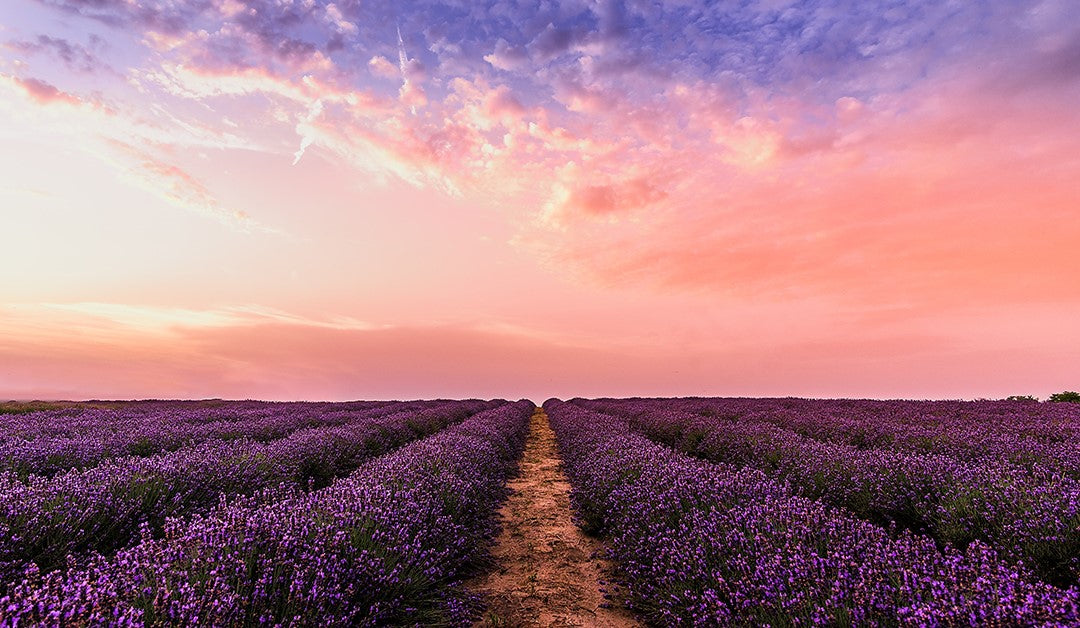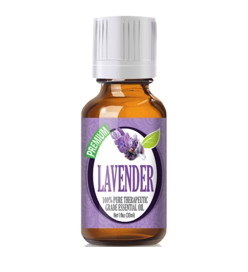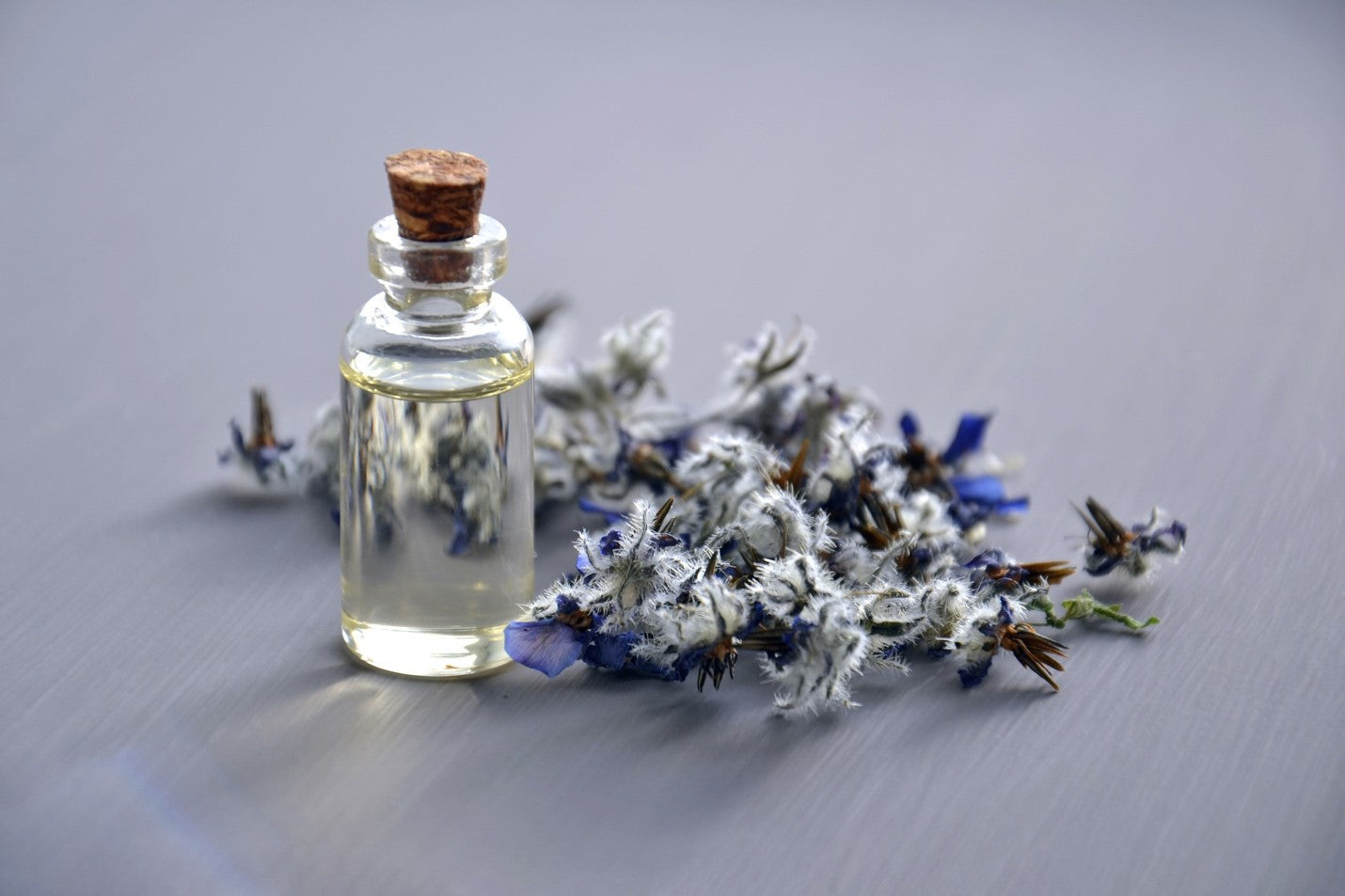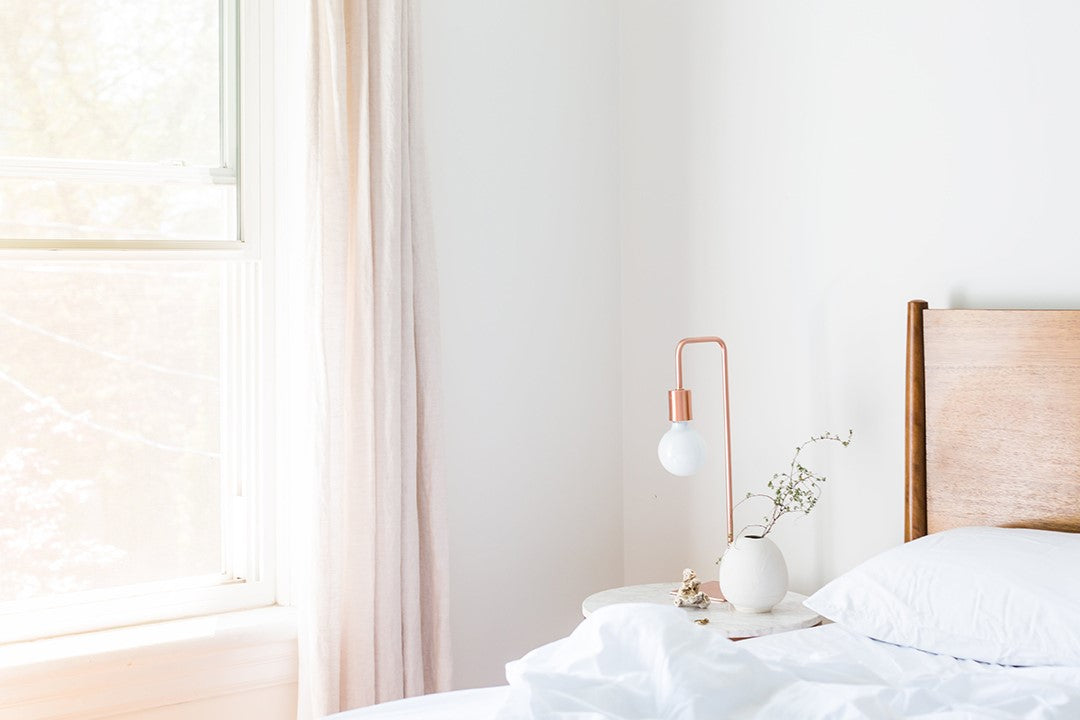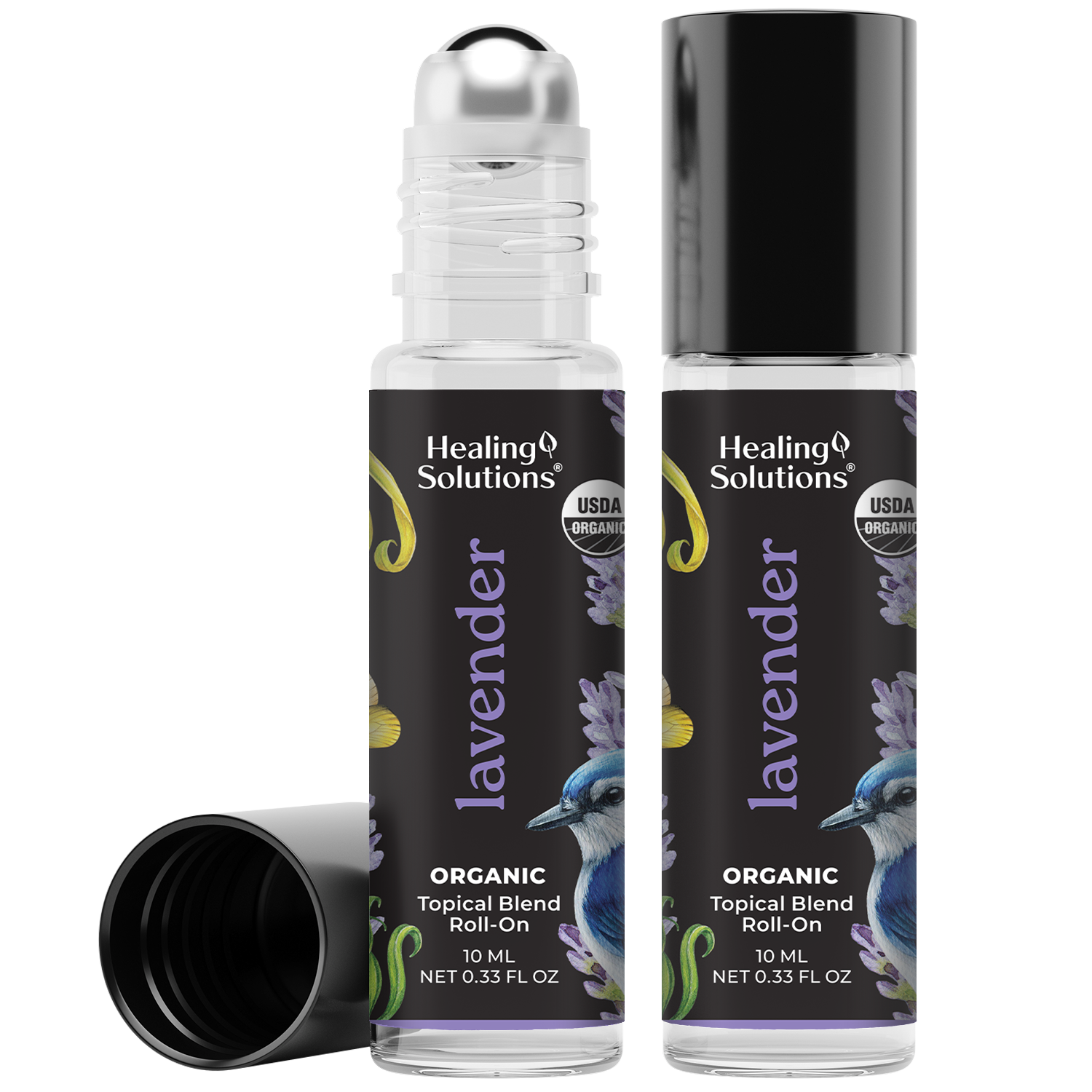Recent research supports what many have known for a long time: lavender has been considered a natural treatment for ailments such as nausea,[i] hair loss,[ii] skin irritation,[iii] and depression.[iv] However, lavender essential oil’s most popular claim to fame is its effects on helping improve the quality of sleep.
Many people use lavender essential oils in diffusers, baths oils, lotions, sleep masks, or even place a few drops on their pillow to help improve sleep. While many people herald the benefits of lavender essential oil’s effects on sleep, some people are dubious. After all, if lavender really had sedative effects, wouldn’t bees fall asleep when pollinating lavender? The answer, of course, is that lavender doesn’t fully sedate you—or bees—it simply helps to relax your physiological systems, making sleep come more easily!
Lavender Essential Oil and Sleep
Almost everyone has occasional difficulty sleeping. Chronic insomnia affects at least 10% of Americans[v] with even more reporting intermittent sleep problems. It’s no wonder, then, that researchers have focused on how to help improve the quality of sleep.
Lavender essential oil has been of particular interest to researchers due to its history in ancient medicine and aromatherapy. While the exact calming mechanisms have not been specifically identified, scientists place a large value on lavender’s sleep-improving organic compounds, including linalool, which has been shown to increase length and quality of sleep.[vi]
Because of its medicinal history and unique composition, lavender oil has made waves as a natural sleep remedy. Outside research labs, individuals love lavender as a natural sleep aid because they often find it seems to improve the quality of their sleep without the side effects that typically occur with over-the-counter sleep aids.[vii]
Does Lavender Oil Really Work to Help Sleep?
A large number of scientific studies have shown positive results in lavender essential oil having positive effects on sleep. In these studies, researchers have found that lavender essential oil helps improve the overall quality of sleep by increasing sleep times,[viii] decreasing sleep disturbances[ix] and increasing self-perception of sleep quality.[x]
For instance, in one single-blind randomized study, researchers found that adding 6-8 drops of lavender essential oil to a diffuser before bed improved the Pittsburgh Sleep Quality Index (PSQI) scores of patients, indicating improved sleep.[xi] In a separate study, infants who were given a lavender-scented bath spent more time in deep sleep after the bath.[xii]
Although there have been occasional discrepancies in studies where low-quality oil has been used or when the origins of lavender oil cannot be verified, most research seems to suggest that lavender essential oil can improve sleep.[xiii]
Who Best Benefits from Lavender Oil’s Sleep-Improving Qualities?
In a collective review of studies on lavender oil’s effects on sleep, researchers found that studies of lavender’s effects on sleep were weighted toward females and younger participants.[xiv] However, additional studies showed that infants, [xv]geriatric adults vii and hospitalized patients[xvi] also experienced positive sleep benefits from inhaling lavender essential oil aroma.
In most of the previously mentioned studies, those experiencing milder insomnia were more likely to see improvements than those with severe insomnia.
How Does Lavender Oil Work to Improve Sleep?
Okay, so the research says that lavender oil can help improve sleep, but how does it actually work?
Like all plants, lavender contains a number of organic compounds, but the one of most interest to sleep experts is linalool. Lavender essential oil typically contains between 25-35% linalool by volume.
Linalool is thought to play the most significant role in lavender oil’s ability to improve sleep. In studies, linalool seems to inhibit the sympathetic nervous system and heighten the parasympathetic nervous system.[xvii] This is a physiological pattern associated with sleep and restfulness.
How can we help?
The calming and light-sedative effects of lavender have been well-researched and documented, making it a soothing addition to your bedtime routine. We recommend using 6-8 drops of lavender essential oil in a diffuser, placing a few drops on your pillow or sheets, using lavender essential oil in a bath before bed, or using lavender in a homemade natural room spray. Our clients not only enjoy the calming effects of our 100% pure and all-natural essential oil, but also love the smell.
“It smells so good and helps me sleep better.” -Gloria
“MY FAVORITE OIL. I use it nightly in my diffuser for a great, relaxing night’s sleep.” -Lisa R
If you’re interested in trying lavender oil to help with sleep, we encourage you to explore our lavender essential oil page.
These statements have not been evaluated by the Food and Drug Administration. These products are not intended to diagnose, treat, cure or prevent any disease. Read our Disclaimer
[i] Karaman S, Karaman T, Tapar H, et al. A randomized placebo-controlled study of aromatherapy for the treatment of postoperative nausea and vomiting. (2019) Complement Ther Med. Feb;42:417-421
[ii] Lee B, Lee J, Kim Y. Hair Growth-Promoting Effects of Lavender Oil in C57BL/6 Mice. (2016) Toxicol Res. Apr;32(2):103-108.
[iii] Cardia G, Silva-Filho S, Silva E, et al. Effect of Lavender (Lavandula angustifolia) Essential Oil on Acute Inflammatory Response. (2018) Evid Based Complement Alternat Med. 2018;2018:1413940
[iv] Lee IS, Lee GJ. Effects of lavender aromatherapy on insomnia and depression in women college students. (2006) Taehan Kahnho Hakhoe Chi Feb;36(1):136-43.
[v] Roth T. Insomnia: Definition, Prevalence, Etiology, and Consequences. (2007) J Clin Sleep Med 3(5 Suppl):S7-S10
[vi] Linck V D, Silva A L, Figueiró M, et al. Inhaled linalool-induced sedation in mice. (2009) Phytomedicine 16;4:303-307.
[vii] Lillehei AS, Halcón LL, Savik K, Reis R. Effect of Inhaled Lavender and Sleep Hygiene on Self-Reported Sleep Issues: A Randomized Controlled Trial. (2015) The Journal of Alternative and Complementary Medicine 21,7.
[viii] Komoi T, Matsumoto T, Motomura E, Shiroyama, T. The Sleep-Enhancing Effect of Valerian Inhalation and Sleep-Shortening Effect of Lemon Inhalation. (2006) Chemical Senses 31;8:731-737.
[ix] Hudson R. The value of lavender for rest and activity in the elderly patient. (1996) Complementary Therapies in Medicine 4;1:52-57.
[x] Lee IS, Lee GJ. Effects of lavender aromatherapy on insomnia and depression in women college students. (2006) Taehan Kahnho Hakhoe Chi Feb;36(1):136-43.
[xi] Lewith GT, Godfrey AD, Prescott P. A single-blinded randomized pilot study evaluating the aroma of Lavandula augustifolia as a treatment for mild insomnia. (2005) Journal of Alternative and Complementary Medicine 11;4:631-637.
[xii] Field Ti, Field To, Cullen C, Largie S, et al. Lavender bath oil reduces stress and crying and enhances sleep in very young infants. (2007) Early Human Development 84;6:399-401
[xiii] Cavanagh H M A, Wilkinson J M. “Biological activities of Lavender essential oil.” (2002) Phytotherapy Research 16(4)301-308.
[xiv] Koulivand P H, Ghadiri M K, Gorji A. Review Article: Lavender and the Nervous System. (2013) Evidence-Based Complementary and Alternative Medicine 2013:681304
[xv] Field Ti, Field To, Cullen C, Largie S, et al. Lavender bath oil reduces stress and crying and enhances sleep in very young infants. (2007) Early Human Development 84;6:399-401
[xvi] Woolfson A, Hewitt D. Intensive aromacare. (1992) International Journal of Aromatherapy 4;2:12-13.
[xvii] Tanida M, Niijima A, Shen J, Nakamura T, Nagai K . Olfactory stimulation with scent of lavender oil affects autonomic neurotransmission and blood pressure in rats. (2006) Neurosci Lett. 1; 398(1-2):155-60.


